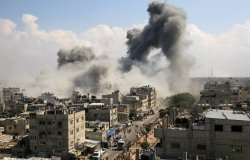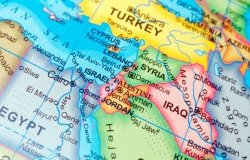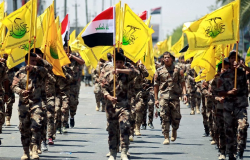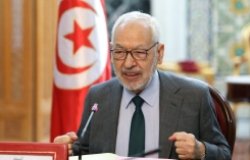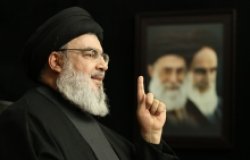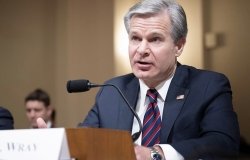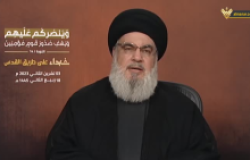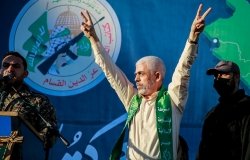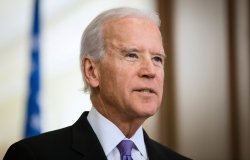Rival Islamic Leaders: ISIS v Iran
The caliph in the Islamic State and the Supreme Leader in Iran hold absolute authority in both political and religious realms with few, if any, real checks on their power.
Cameron Glenn and Garrett Nada
The caliph in the Islamic State and the Supreme Leader in Iran hold absolute authority in both political and religious realms with few, if any, real checks on their power. Both ISIS and Iran emphasize scholarship and piety as qualifications for their leaders. The current leaders both claim to be seyyeds, descendants of the Prophet Mohammed, which boosts their credentials.
The Islamic State’s Abu Bakr al Baghdadi, has been active in jihadist groups since the 1990s. He assumed leadership of the Islamic State’s predecessor, the Islamic State in Iraq, in 2010. When the group renamed itself the Islamic State, Baghdadi took the title of caliph. In theory, he has total authority within ISIS territory, but his day-to-day responsibilities are unclear.
The Islamic Republic of Iran’s current Supreme Leader, Ayatollah Ali Khamenei, succeeded late revolutionary leader Ayatollah Ruhollah Khomeini in 1989. Khamenei has authority over Iran’s judicial, legislative and executive branches, as well as the military. His role is clearly defined in the constitution. Unlike Baghdadi, Khamenei frequently gives public addresses and appears on state television. The supreme leader’s office is active on social media networks, promoting his worldview in several languages.
Leadership Selection and Qualifications
The Islamic State
The Islamic Republic of Iran
On justification of Baghdadi’s leadership: “The scholar who practices what he preaches, the worshipper, the leader, the warrior, the reviver, descendent from the family of the Prophet, the slave of Allah, Ibrāhīm Ibn‘Awwād IbnIbrāhīm Ibn‘AlīIbnMuhammad al-Badrīal-Hāshimīal-Husaynīal-Qurashīby lineage, as-Sāmurrā’ī by birth and upbringing, al-Baghdādī by residence and scholarship. And he has accepted the bay’ah (pledge of allegiance). Thus, he is the imam and khalīfahfor the Muslims everywhere.” - This is the Promise of Allah
“Imamah (leadership) in religious affairs cannot be properly established unless the people of truth first achieve comprehensive political imamah over the lands and the people.” - Issue #1 of ISIS's "Dabiq" magazine
“We will continue to obey the imam as long as he orders us to obey Ar-Rahman (the Most Merciful). But if he orders us to disobey Allah, then we won’t obey those orders.”- Issue #1 of ISIS's "Dabiq" magazine
Article 109
“Following are the essential qualifications and conditions for the Leader:
•a. scholarship, as required for performing the functions of mufti in different fields of fiqh.
•b. Justice and piety, as required for the leadership of the Islamic Ummah [nation].
•c. right political and social perspicacity, prudence, courage, administrative facilities and adequate capability for leadership.
In case of multiplicity of persons fulfilling the above qualifications and conditions, the person possessing the better jurisprudential and political perspicacity will be given preference.”
The Leaders
The Islamic State
The Islamic Republic of Iran
Abu Bakr al Baghdadi
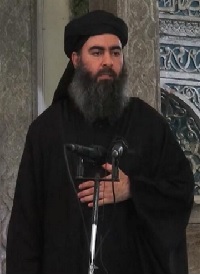 Baghdadi was born in Samarra in 1971, and reportedly received jihadist training in Afghanistan in the late 1990s, where he lived with Abu Musab al Zarqawi in Kabul. He fought with jihadists in Fallujah in the early 2000s after returning to Iraq, and was reportedly held at the U.S. detention facility Camp Bucca from February to December 2004. In 2010 he assumed leadership of ISIS, then called the Islamic State of Iraq. Little else is known of his background, but jihadist publications claim that he is from a religious family descended from noble tribes, and that he holds a PhD from Baghdad’s Islamic University.
Baghdadi was born in Samarra in 1971, and reportedly received jihadist training in Afghanistan in the late 1990s, where he lived with Abu Musab al Zarqawi in Kabul. He fought with jihadists in Fallujah in the early 2000s after returning to Iraq, and was reportedly held at the U.S. detention facility Camp Bucca from February to December 2004. In 2010 he assumed leadership of ISIS, then called the Islamic State of Iraq. Little else is known of his background, but jihadist publications claim that he is from a religious family descended from noble tribes, and that he holds a PhD from Baghdad’s Islamic University.
Baghdadi is known for avoiding the spotlight. There are only two known photos of him, and he reportedly conceals his identity with a bandanna from everyone outside his small inner circle.
Baghdadi is the supreme political and religious leader in ISIS territory. The caliph has virtually unchecked authority, but in practice he relies on deputies like Abu Muslim al Turkemani, who oversees ISIS areas in Iraq, to manage administration of its territory. The Islamic State has ashuracouncil that can theoretically depose the caliph, but all members areappointed by Baghdadi.
The leader has a strongly anti-Western world view, and in his speeches he has urged Muslims around the world to rise up and take revenge against injustices inflicted by “the Jews, the Crusaders, their allies...all being led by America and Russia.”
Supreme Leader Ayatollah Ali Khamenei
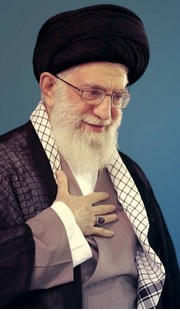 Born in 1939 to a traditional family, Ali Khamenei followed in his father’s footsteps and became a cleric. He joined the struggle against the monarchy in the 1960s and spentseveral years in prison before the 1979 revolution.
Born in 1939 to a traditional family, Ali Khamenei followed in his father’s footsteps and became a cleric. He joined the struggle against the monarchy in the 1960s and spentseveral years in prison before the 1979 revolution.
Khamenei’s sacrifices for the Islamic revolution and close relationship with Ayatollah Ruhollah Khomeini helped him to attain power within the new government. He served as president for two terms from 1981 to 1989. When Khomeini died in 1989, he left no designated successor. Khamenei was selected by the Assembly of Experts as the second supreme leader, despite the objection of some senior clerics who felt he lacked the theological credentials.
As supreme leader, Khamenei is Iran’s most powerful official. He wields constitutional authority or significant influence over all branches of the government, the military and the judiciary. His control over the 12-man Guardian Council, which vets all candidates for public office, enables him to influence who can and cannot run. For most of his tenure, Khamenei has preferred to stay out of the public eye.
Khamenei still upholds the revolutionary and anti-Western narrative of the 1979 revolution. The United States and its allies, especially Israel, are trying to undermine Iran and the progress of Muslim nations, according to his worldview.
Click here for more information on Khamenei.
In Their Own Words
The following are quotes by Baghdadi and Khamenei on key issues.
The Islamic State
The Islamic Republic of Iran
On Democracy
“The Muslims today have a loud, thundering statement, and possess heavy boots. They have a statement that will cause the world to hear and understand the meaning of terrorism, and boots that will trample the idol of nationalism, destroy the idol of democracy and uncover its deviant nature.” - July 1, 2014, in a speech
On Iran
"Muslims' rights are forcibly seized in...Iran (by the rafidah* [Shiites])."
"Terrorism is to worship Allah as He ordered you. Terrorism is to refuse humiliation, subjugation, and subordination (to the kuffar– infidels). Terrorism is for the Muslim to live as a Muslim, honorably with might and freedom. Terrorism is to insist upon your rights and not give them up...Terrorism does not include the extreme torture and degradation of Muslims in East Turkistan and Iran (by the rafidah), as well as preventing them from receiving their most basic rights."
*"Rafidah" is a pejorative term for Shiites
- July 1, 2014, in a speech
On the United States and Israel
“O ummah of Islam, indeed the world today has been divided into two camps and two trenches, with no third camp present: The camp of Islam and faith, and the camp of kufr (disbelief) and hypocrisy – the camp of the Muslims and the mujahidin everywhere, and the camp of the Jews, the crusaders, their allies, and with them the rest of the nations and religions of kufr, all being led by America and Russia, and being mobilized by the Jews.”
- July 1, 2014, in a speech
On Democracy
“As for political and social issues, the higher aspect of this religious democracy is that we have had 32 elections during the 35 years from the beginning of our Revolution. Thirty two public elections have been held in this country. Is this a minor achievement? This is an exceptional phenomenon. Elections in the Islamic Republic are held with a high turnout - higher than the global average and in some cases, it is much higher.”
–June 6, 2015 in a speech
On ISIS and al Qaeda
“This takfiri orientation - the thing that has emerged in Iraq, Syria and some other regional countries today and that confronts all Muslims, not just Shias - is the handicraft of colonialists themselves. They made something called alQaida and DAESH [ISIS] in order to confront the Islamic Republic and the movement of the Islamic Awakening. However, this product has become a burden for them.”
“We see that the unreal effort which America and its allies are making in the region today under the name of confronting DAESH is, in fact, an effort for channeling enmities among Muslims more than it is an effort for nipping this evil movement in the bud. They try to pit Muslims against one another. Today, they have chosen this ignorant, prejudiced, fossilized and dependent group as the element for doing this. Otherwise, the goal is the same old goal.”
– Sept. 13, 2014 in a speech
On the United States and Israel
“If we are to find a regime in the world which is evil towards everyone and plots against everyone, that regime is the American regime. It is the United States of America which is evil towards everyone, as wherever it strides in, it does so with aggressiveness, arrogance, voracity and insolence.”
– Oct. 29, 2008
“[Western-style] freedom in the economy, political scene and moral issues…reflect terrible, bitter, heinous and in some cases abhorrent realities in the Western society. The results are discrimination, bullying, warmongering and double standards towards noble issues like human rights and democracy.”
– Nov. 14, 2012 in a meeting with academics and teachers
“If the Zionist regime makes a wrong move, the Islamic Republic of Iran will raze Tel Aviv and Haifa to the ground.”
– March 21, 2013 in an address to a crowd in Mashhad for Persian New Year
Cameron Glenn writes for The Islamists Are Coming, hosted by the Woodrow Wilson Center for Scholars.
Garrett Nada is assistant editor of the Iran Primer hosted by the U.S. Institute of Peace. He is on Twitter: @GarrettNada.
The views expressed are their own.
Related Program

The Islamists
Learn more about Hamas and how it relates to similarly aligned organizations throughout the region. Read more
